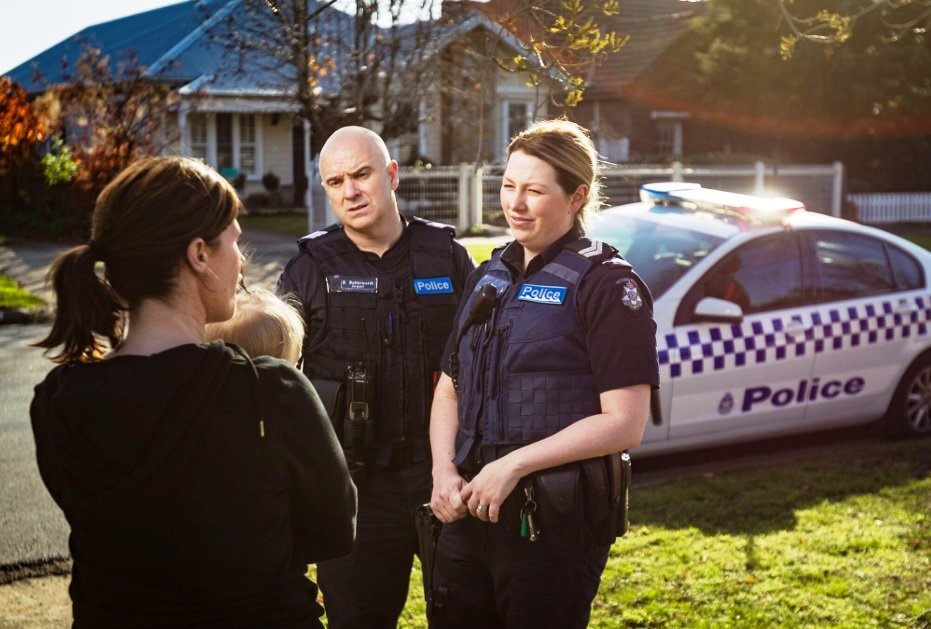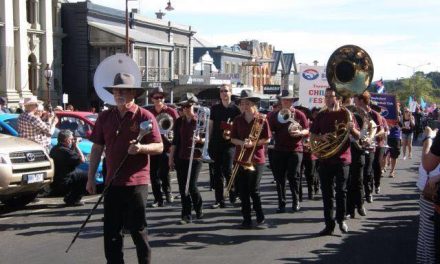In our first article on Domestic Violence, we highlighted local crime statistics that show that fully one third of all crime reported to police in Hepburn Shire is Family Violence related.
The Victoria Police are often the first responders in incidents of Family Violence. Their role is both to protect victims and to prevent offenders from inflicting further violence.
In Victoria, the role of the police in responding to domestic violence is primarily guided by the Family Violence Protection Act 2008. An outcome of the Royal Commission into Family Violence (2016) was the development of a new Family Violence Multi-Agency Risk Assessment and Management (MARAM) Framework which was incorporated into the Act.
This legislation mandates the police to act swiftly and decisively to protect victims, prevent further violence, and hold perpetrators accountable. The responsibilities of the police in domestic violence cases include responding to emergency calls, conducting risk assessments, issuing intervention orders, referring victims to appropriate support services and collaborating with other agencies and professionals involved in the Framework.
The MARAM framework ensures that police responses are consistent, informed by evidence, and tailored to the specific needs of each case. By accurately assessing risk, police can make informed decisions about intervention and referral to other services, which is crucial in preventing further violence.
Police officers are also responsible for collecting evidence and documenting the incident, which is vital for any subsequent legal proceedings. Their role extends to offering victims information about their rights and available support services, such as counselling, legal advice, and emergency accommodation. Their response is documented in the Victoria Police Manual (VPM) for Family Violence updated in 2021.
Victoria Police receive some training in dealing with the family violence issues, but they are really only authorised to deal with the legal aspects. They can’t provide counselling services and will refer victims to support services such as Orange Door and Berry Street in Ballarat.
Senior Sergeant Simon Brand is the VicPol Operations Manager for the Golden Plains Hepburn Springs region. He has some 40 uniformed officers working for him. He says domestic violence is a big part of the number of call-outs his members receive and forms a large part of their workload.
Senior Sergeant Brand says the back-end” of family violence events, incorporating follow-up and assistance is huge and is not recognised by the general public. A first time report of family violence takes about 4 hours of paperwork. Complex investigations and court matters can take weeks.
The effectiveness of police responses to domestic violence in Victoria has been a subject of ongoing discussion and evaluation. Over the years, significant efforts have been made to improve their approach, including specialised training, the establishment of dedicated family violence units, and the introduction of risk assessment tools.
However, despite these improvements, challenges remain. The incidence of Family Violence in Hepburn Shire remains almost unchanged over the eight years since the publication of the Royal Commission report. The overburdened court system and limited resources for ongoing support services can undermine the effectiveness of police interventions. Without adequate follow-up and support, victims may feel abandoned once the immediate crisis has passed, leaving them vulnerable to further abuse.
But the police response and the the crime statistics do not provide the whole picture. Research suggests that only about 50% to 60% of domestic violence incidents in Australia are reported to police. Police can only respond to the cases that are reported. Nearly half of all incidents may go unreported, leaving many victims without the necessary protection and support.
Several factors contribute to this underreporting. Victims may fear retaliation from the perpetrator, especially if they live in the same household. Others might feel ashamed or believe that the violence is a private matter that should not involve law enforcement. Cultural factors, economic dependency, and a lack of awareness about available support services can also deter victims from seeking help.
Senior Sargent Brand believes that solutions to family violence needs generational change. “The solution lies in addressing children and young people and in a concerted effort at community education.”
Related Stories:
Domestic Violence is Real – And It’s Here
This is the second of a series of articles we intend to publish in The Wombat Post. In future issues, we will examine drivers of family violence and how to respond to cases of inappropriate gender-based behaviour and how to get help.
If you or someone close to you is experiencing family violence, contact Safe Steps 24/7 for support on 1800 015 188 or email safesteps@safesteps.org.au. Support is also available from the National Sexual Assault, Domestic Family Violence Counselling Service at 1800 737 732.
You can contact Lifeline on 13 11 14 or Beyond Blue on 1300 22 4636 for support. In an emergency, dial 000.
No to Violence runs a Men’s Referral Service (1300 766 491) that provides men who use violence with support to change their behaviour.





